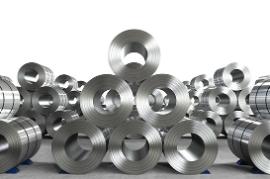About the Global Forum
The Global Forum on Steel Excess Capacity (GFSEC) is an international platform to find and implement collective solutions to the challenge of excess capacity and enhance market functioning in the steel sector.
It brings together policy makers and industry stakeholders to share information and cooperate in line with the call of G20 Leaders at the Hangzhou Summit in September 2016. The GFSEC was formally established in December 2016 in Berlin. Global Forum members include many of the largest steel producing economies in the world.
The Global Forum is an open platform where members participate on an equal footing. It aims to broaden its membership and is open to all steel-producing economies committed to pursuing its mission.
The GFSEC is facilitated by the OECD, which provides technical, analytical and meeting assistance to support the Global Forum, its steering group and chairmanship.
What is the issue of excess capacity?
Steel is an essential material used in virtually all manufacturing sectors and construction applications, and the steel sector plays an important role in connecting economies through its central position in global value chains. With more than 90 countries producing on aggregate almost 1.9 billion metric tonnes of crude steel in 2023, few challenges have more global impact than those facing the steel sector.
Excess steelmaking capacity creates significant difficulties for steel producers in advanced, emerging and developing economies alike. It depresses prices, undermines profitability, generates damaging trade distortions, jeopardizes the very existence of companies and branches across the world, creates regional imbalances, undermines the fight against environmental challenges and dangerously destabilizes world trading relations. It especially undermines income opportunities of employees.
Recognising the serious problem of excess capacity in the global steel industry, at their September 2016 summit in Hangzhou, G20 Leaders called for the formation of a Global Forum on Steel Excess Capacity (GFSEC), facilitated by the OECD, to increase information sharing and cooperation. As many countries have set objectives to lower carbon emissions, the GFSEC is also engaging in discussions on decarbonisation of the steel industry, given that this issue is closely intertwined with excess capacity. At the June 2023 GFSEC Ministerial Meeting, Ministers and high-level representatives urged the GFSEC to deepen its substantive work as a basis for strengthening global cooperation and the development of tangible policy options for addressing global excess capacity, and its negative impact on sustainability and the economic health of the industry.
New analytical work: Impacts of global excess capacity on the health of GFSEC steel industries
Published in March and May 2024, two new analytical reports by the GFSEC explore the impacts of global steel excess capacity. A paper published in May explores the destination, volume and characteristics of steel exports from economies with rapid growth in steelmaking capacity. A paper published in March examines the impacts of excess capacity, taking a first step in quantifying the magnitude of the negative impacts of excess capacity on steel industries of GFSEC members. The empirical results obtained from a rich data set are robust, indicating that global excess capacity leads to greater imports of steel from sources of excess capacity and significantly weakens the capacity utilisation rates and profitability of steel industries in other countries. Moreover, a counterfactual exercise demonstrates that absent the surge in global excess capacity observed since the financial and economic crisis of 2008/09, the capacity utilisation rates and profitability of GFSEC steel industries would have been at healthy and sustainable levels. Without further action to address global excess capacity, steel industries will face difficult financial conditions that may create obstacles for long-term sustainability and investments for the green transition.
 Steel exports, trade remedy actions and sources of excess capacity (May 2024)
Steel exports, trade remedy actions and sources of excess capacity (May 2024)
 Impacts of global excess capacity on the health of GFSEC steel industries (March 2024)
Impacts of global excess capacity on the health of GFSEC steel industries (March 2024)
The GFSEC Ministerial meeting
GFSEC Ministers of Trade, Industry and Foreign Affairs, as well as other high-level officials, gather yearly to approve annual GFSEC Ministerial reports, usually in the lead up to the G20 Summit. These reports present an overview of steel market and excess capacity trends, the work of the GFSEC and progress made, and key policy messages for tackling excess capacity challenges facing the steel industry.
Recent developments
The link between steel excess capacity and decarbonisation
By contributing to 8% of global CO2 emissions, the steel industry is key to achieving climate goals. About 90% of global steelmaking capacity is located in countries that have announced net-zero targets.
The low-carbon transition of the steel industry requires a deep transformation, along with the combination of various decarbonisation options. This shift implies envisioning a long-term strategy that calls for a sound business environment, which is not compatible with excess capacity. Addressing excess capacity is critical to pave the way for successful steel industry decarbonisation and, ultimately, to meet climate goals.
At the June 2023 GFSEC Ministerial meeting, many Ministers and other high-level officials underscored the impacts of excess capacity on their domestic industry and the challenges this entails to decarbonise the steel industry. Several members emphasised their commitment to steel decarbonisation and pointed to the link between capacity developments and decarbonisation.
Further reading
- Assessing steel decarbonisation progress in the context of excess capacity: A steel indicator decarbonisation dashboard



